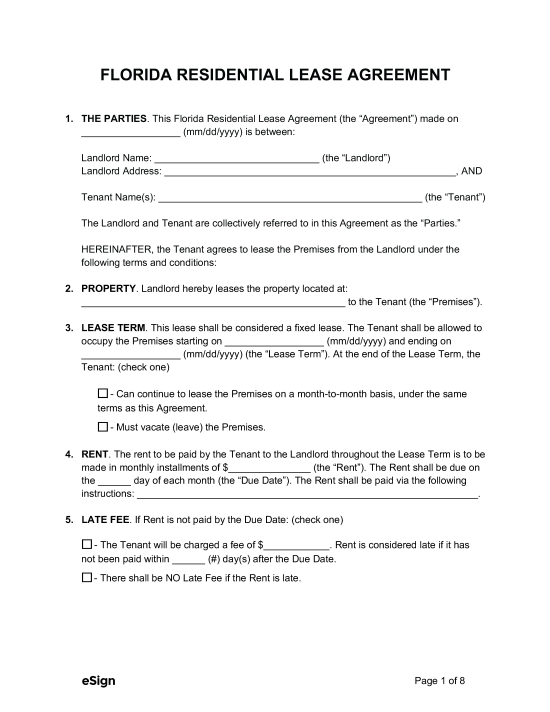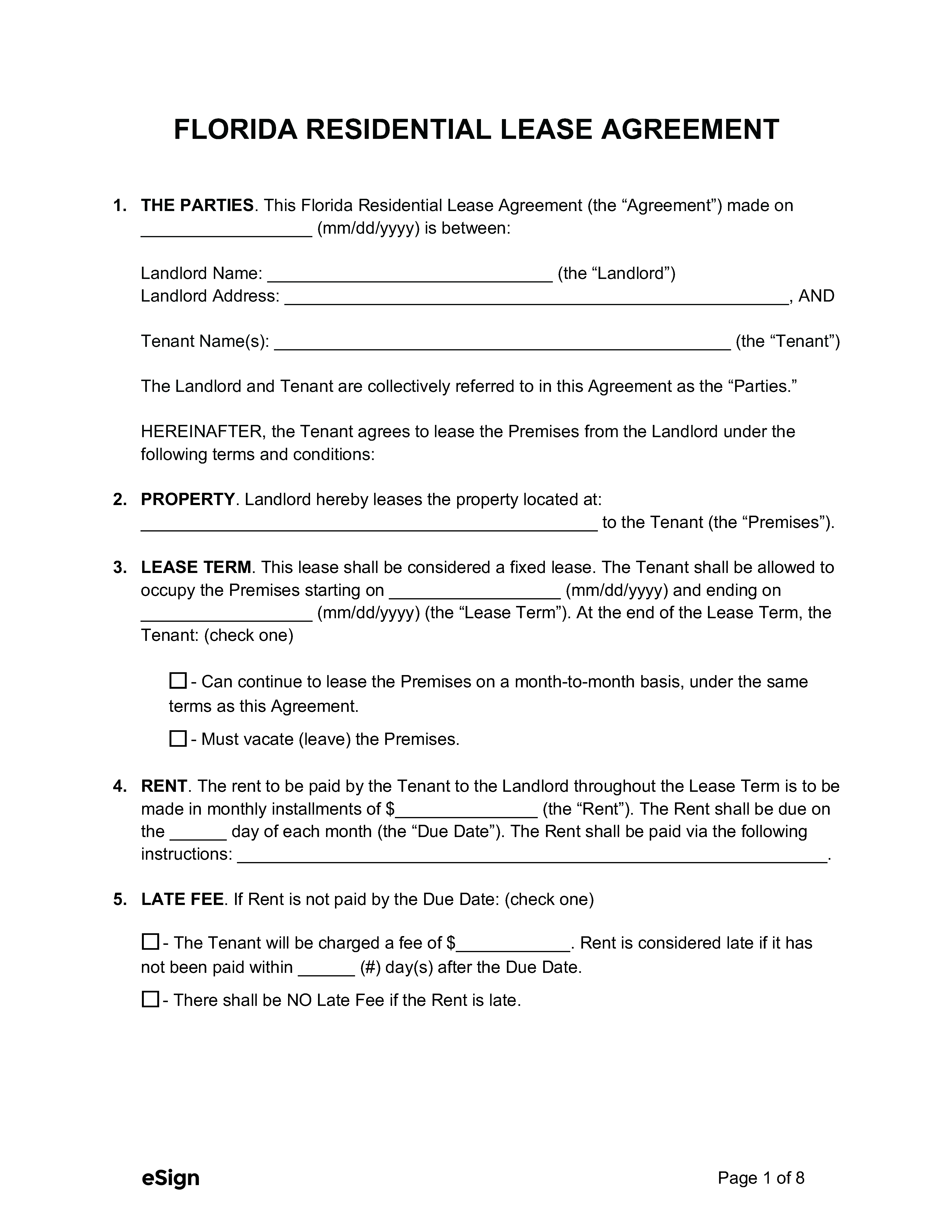
A Florida lease agreement is a document that sets the terms of a residential or commercial rental arrangement between a landlord and tenant. Each agreement defines important rental conditions like the lease duration, utility requirements, late fees, maintenance duties, and the amount and due date for the tenant’s monthly rent payments.
A Florida lease agreement is a document that sets the terms of a residential or commercial rental arrangement between a landlord and tenant. Each agreement defines important rental conditions like the lease duration, utility requirements, late fees, maintenance duties, and the amount and due date for the tenant’s monthly rent payments.
PDF Download
A Florida lease agreement is a document that sets the terms of a residential or commercial rental arrangement between a landlord and tenant. Each agreement defines important rental conditions like the lease duration, utility requirements, late fees, maintenance duties, and the amount and due date for the tenant’s monthly rent payments.
4.7 | 174 Ratings Downloads: 41,180
Rental Application – Used to collect background information from lease applicants so the landlord can find the most suitable tenant for their property.
Maximum Amount ($) – Florida has no specific laws limiting the amount landlords can charge as a security deposit.
Collecting Interest – Interest is not required but may be collected as long as the tenant receives either 75% of the annualized average interest rate or 5% simple interest each year. [5]
Returning to Tenant – The landlord is given 15 days to return the security deposit (plus any interest) after the tenant moves out. [6]
Itemized List Required? – Yes, if the landlord deducts from the deposit, they must provide the tenant with a written statement explaining the reason and amount of each deduction. [8]
Separate Bank Account? – Yes, security deposits must be deposited in a Florida bank account, and the money cannot be mixed with other funds. [9]
General Access – Landlords are allowed to enter as long as they give reasonable notice. For repairs, reasonable notice is considered to be at least 24 hours. [10]
Immediate Access – Florida landlords can enter a tenant’s dwelling without notice if there’s an emergency, for the protection/preservation of the premises, or if the tenant is absent for longer than one-half of the payment period . [11]
Grace Period – Florida law doesn’t mention a grace period. Unless the lease specifies otherwise, payments are due at the start of each rental period. [12]
Maximum Late Fee ($) – There are no laws that define a maximum late rent fee. Landlords can charge any amount, but unreasonable fees may not be enforceable in court. [13]
Bad Check (NSF) Fee – If the tenant issues a bad check, the landlord can charge the greater of 5% of the check amount or a flat fee as follows [14] :
Withholding Rent – Tenants may be allowed to withhold rent if the landlord doesn’t do what the lease or law requires. However, before doing so, tenants must inform the landlord and give them seven days to fix the issue. [15]
Non-Payment of Rent – Landlords are required to issue a 3-day notice before ending a lease due to unpaid rent. [16]
Non-Compliance – A 7-day notice is needed to break a lease following a rental violation by the tenant. [17]
Lockouts – Unless the tenant abandons the property or is evicted through a court order, the landlord cannot change the locks or otherwise restrict access to the tenant’s rental unit. [18]
Leaving Before the End Date – The landlord is given the following options when a tenant abandons the rental unit [19] :
Month-to-Month Tenancy – A 30-day notice is required to terminate a month-to-month tenancy in Florida. [20]
Unclaimed Property – The landlord must send the tenant a written notice describing their abandoned belongings, including potential storage fees and collection details. Tenants must claim their property within 10 days if the notice is delivered in person or 15 days if it’s sent by mail. [21]